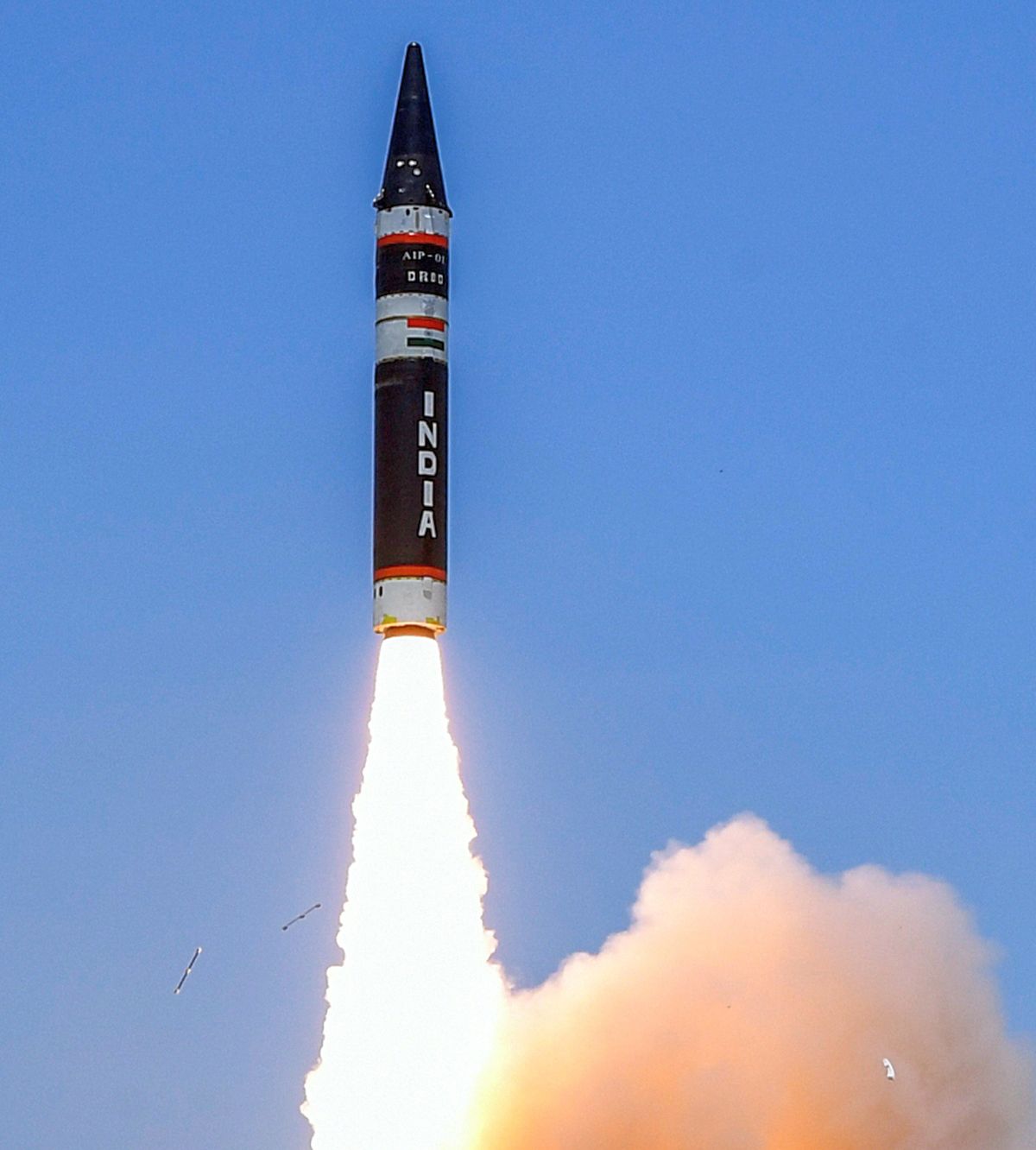

Defence Research and Development Organisation (DRDO) has been able to reduce the weight of the Agni-5 missile by replacing steel content with composite materials.
New Delhi: Days after the successful trials of the nuclear-capable Agni-5 ballistic missile, India has now developed the capability to strike targets beyond the range of 7,000 kms.
India on Thursday had successfully carried out night trials of the Agni-5 nuclear-capable ballistic missile at its full range of 5400 kms. The test was carried out to validate new technologies and equipment on the missile which is now lighter than before.
Sources in the defence establishment told ANI that the Defence Research and Development Organisation (DRDO) has been able to reduce the weight of the Agni-5 missile by replacing steel content with composite materials. “The weight reduction that has been achieved in the missile system is beyond 20 per cent and if the government wants, the nuclear-capable strategic missile can go beyond 7,000 kms,” they said.
Sources cited the example of the Agni-3 which weighs around 40 tonnes and can strike targets at 3,000 kms but the Agni-4 weighing slightly more than 20 tonnes can cover a much longer range.
The extended range of the missile which is part of the Strategic Forces Command will give a variety of options to the planners during times of conflict.
India’s nuclear weapon programme is mainly for deterrence against its adversaries including China and Pakistan as it has a no-first-use policy.
It has been strengthening the second strike capability and is also working on the development of a submarine-launched ballistic missile.
The sources said the decision to test the missile for its new maximum possible range will have to be taken by the government.
In October last year, India carried out the successful launch of the surface-to-surface ballistic missile, Agni-5 from APJ Abdul Kalam Island, Odisha.
The missile, which uses a three-stage solid-fuelled engine, is capable of striking targets at ranges up to 5,000 kilometres with a very high degree of accuracy, the defence ministry said in a statement.
The successful test of Agni-5 is in line with India’s stated policy to have ‘credible minimum deterrence’ that underpins the commitment to ‘No First Use’, it had said.
In June 2018, India had first successfully flight-tested Agni 5 from Dr APJ Abdul Kalam Island (Wheeler Island).
New Zealand's Deputy Prime Minister and Foreign Minister Winston Peters has arrived Kathmandu on his…
The Indian Army and the Mongolian Armed Forces will commence the 17th edition of their…
Pandi Ram Mandavi, a renowned artist from Bastar, Chhattisgarh, was conferred the Padma Shri award…
Taiwan's Mainland Affairs Council (MAC) criticised China on Wednesday for organising two summits for Taiwanese…
The East Turkistan Government in Exile (ETGE) vehemently denounces Mr. Francesco Frangialli, the Honorary Secretary-General…
Chairman John Moolenaar and Ranking Member Raja Krishnamoorthi of the House Select Committee on the…